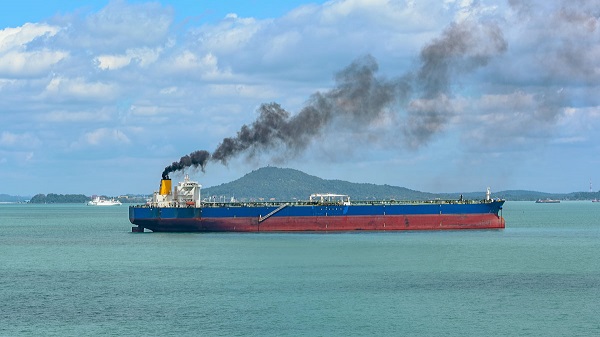As global attention intensifies on the shipping industry’s role in addressing climate change, the International Maritime Organization (IMO) has committed to ambitious decarbonization targets.
The 2023 IMO GHG Strategy outlines a goal to cut international shipping emissions to net zero by 2050. Key interim milestones include a 20-30% reduction in total annual greenhouse gas (GHG) emissions by 2030 and a 70-80% reduction by 2040, based on 2008 levels.
Central to this strategy is a GHG fuel intensity standard and a maritime emissions pricing mechanism.
While some countries are positioning themselves to capitalize on the decarbonization process, such as by developing green hydrogen industries, others express concern over potential economic repercussions.
For many developing nations, particularly in Africa, the cost of living and food security issues remain key concerns in light of these climate measures.
A recent report by Africa Policy Research Institute (APRI), the Firoz Lalji Institute for Africa at the London School of Economics (LSE), and the African Future Policies Hub (AFPH) delves into the potential impacts of a shipping carbon tax on African economies.
The report analyzes how mid-term measures under discussion at the IMO could influence African trade, food security, and economic stability.
Economic Impact on African Shipping and Trade
The report uses the Global Trade Analysis Project Energy-Environmental (GTAP-E) Computable General Equilibrium (CGE) model to assess the effect of a carbon tax on maritime shipping services in Africa.
The findings indicate that a shipping levy could lead to a 7% reduction in maritime services across the continent. The impact on GDP, while modest, is significant for countries like Equatorial Guinea, which could experience a 0.121% decline.
The tax is also expected to push up global prices of agricultural and processed food products by 0.011% and 0.013%, respectively. Given that African countries heavily rely on imported food, this has raised concerns about food security.
Household incomes in many African nations would also be negatively affected, with Ghana projected to see a 0.101% reduction—ten times higher than the reduction forecast for European households.
Ghana’s Stakeholders Voice Concerns
A key case study in the report focuses on Ghana’s maritime sector. Interviews with industry players revealed apprehension about the financial burden that GHG reduction measures could impose.
The increased cost of doing business, exacerbated by existing freight cost imbalances, is a major concern. Stakeholders fear that Ghana’s small fleet may become too expensive to operate under stricter emissions regulations, potentially leaving it obsolete.
There is also a strong opposition to limiting the revenues generated from carbon levies to the shipping sector alone. Stakeholders in Ghana called for a more flexible approach that allows transition fuels and ensures that the economic burden of decarbonization is shared equitably.
Recommendations for Equitable Climate Action
The report advocates for the redistribution of carbon tax revenues to mitigate negative economic impacts.
It calls on the IMO to allocate a significant portion of funds towards renewable energy, resilient agriculture, and hydrogen production projects, particularly in African nations. These efforts would help offset the higher costs of doing business and promote a just transition to net zero emissions.
Redistribution should be based on criteria such as a country’s exposure to climate risks, economic context, access to climate finance, and the disproportionate effects of shipping measures.
Importantly, the report recommends that redistributions come in the form of direct transfers rather than loans, adhering to the “polluter pays” principle.
As Africa navigates the challenges and opportunities posed by shipping decarbonization, balancing climate action with economic stability remains key for stakeholders across the continent.
This report underscores the complexities of implementing shipping decarbonization in Africa, offering insights into how the continent can manage the trade-offs between environmental goals and economic realities.
Also Read
DSV acquires Schenker in €14.3 Billion Deal
Transnet gets financial impetus to improve South Africa’s freight and rail sector


